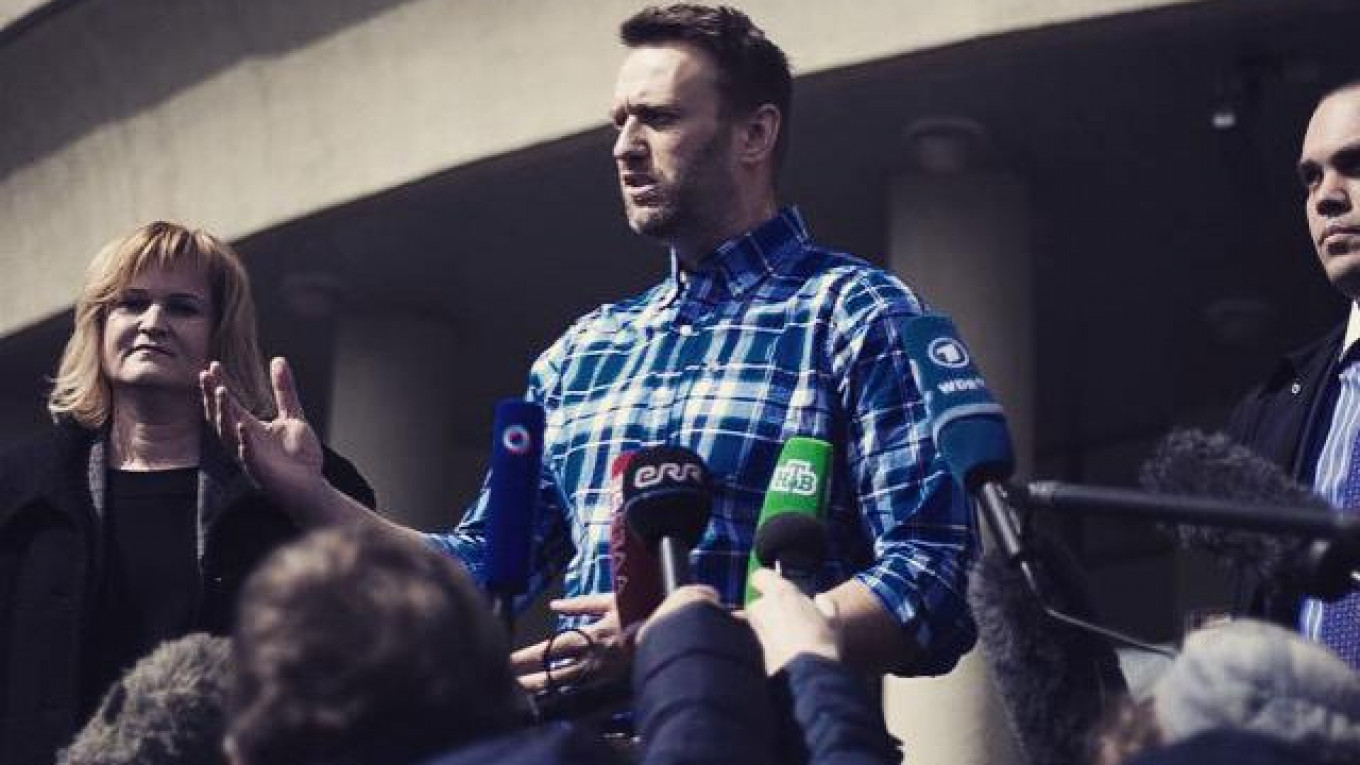The Russian opposition woke up to a surprise on the morning of Nov. 16. Moscow’s Supreme Court unexpectedly scrapped opposition leader Alexei Navalny’s criminal conviction, and sent his case for a retrial. Convicting Navalny was the Kremlin’s way of stopping him from taking part in any national elections.
The court’s decision has opened the — until now unthinkable — prospect of Vladimir Putin’s main political foe running for president in 2018. The news was, unsurprisingly, met with suspicion in opposition circles.
Kirov Trial
Back in 2013, Navalny was charged with stealing timber from a state-owned corporation in the provincial city of Kirov. The trial was largely condemned as politically motivated: it came just two months after the Moscow mayoral election, in which Navalny won 30 percent of the vote against a Kremlin loyalist.
As part of another case a year later, Navalny and his brother Oleg were convicted of embezzling 30 million rubles ($460,000). Navalny was given a suspended sentence but his brother was sent to three and a half years in prison. Human rights organizations again condemned the sentence as a Soviet-style tactic to silence dissent by holding relatives hostage.
This second conviction did not, however, legally stop Navalny from running for office. It was the earlier Kirov conviction that blocked him from registering as a candidate in Russia’s recent parliamentary election.
Navalny for President?
While dramatic arrests would indicate a continuation of authoritarian rule, there have been some indications that the Kremlin might loosen its grip on some aspects of political life. The appointment of a new head of domestic politics, Sergei Kiriyenko, with his reputation as a progressive Western-minded liberal, was considered to be a move in this direction. Soon after the appointment, the word “thaw” entered Moscow political lexicon.
The Supreme Court ruling on Navalny could be interpreted as part of the same trend. But while Navalny’s scrapped sentence has sparked speculation that he can compete in the upcoming 2018 presidential contest, this is far from a done deal. Even if the court ruling is not revisited, there are plenty of other barriers that could stop Navalny from running. Collecting the requisite number of signatures to register for an election remains a key obstacle, for example.
While these are signals that the Kremlin is open to more competition, it is clearly an “overstatement” to call it a thaw, says Kynev. Russian political expert Stanislav Belkovsky says he did not expect the court decision, and that the development flew in the face of wider political developments. At the same time, the analyst did not exclude the possibility that the Kremlin may harbor radical aspirations to “adopt” Navalny as a partner in 2018.
“It would make sense for the regime, both at home and abroad,” says Belkovsky. Political analyst Yekaterina Schulmann also thinks the Kremlin may be starting to search for new, unexpected candidates for the 2018 presidential election. The Kremlin’s strategists will face a tough task, which may force them to opt for “untested” candidates, says Schulmann. “On one hand, they will have to keep the voters intrigued to ensure a high turnout but on the other, they don’t want 20 unknown candidates on the ballot.”
Whether he was aware of such plans or not, Navalny maintained public skepticism of the court’s motivations. Whatever the Kremlin is planning for 2018, he wrote, he will “continue to fight these harmful thieves in positions of power.”
A Message from The Moscow Times:
Dear readers,
We are facing unprecedented challenges. Russia's Prosecutor General's Office has designated The Moscow Times as an "undesirable" organization, criminalizing our work and putting our staff at risk of prosecution. This follows our earlier unjust labeling as a "foreign agent."
These actions are direct attempts to silence independent journalism in Russia. The authorities claim our work "discredits the decisions of the Russian leadership." We see things differently: we strive to provide accurate, unbiased reporting on Russia.
We, the journalists of The Moscow Times, refuse to be silenced. But to continue our work, we need your help.
Your support, no matter how small, makes a world of difference. If you can, please support us monthly starting from just $2. It's quick to set up, and every contribution makes a significant impact.
By supporting The Moscow Times, you're defending open, independent journalism in the face of repression. Thank you for standing with us.
Remind me later.






